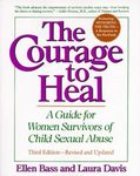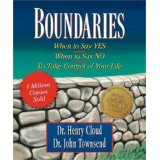|
Surviving Sexual or Physical Abuse
As a child or teenager, the trauma of sexual or physical abuse is overwhelming. It is a terribly confusing time to deal with the fear, hurt and shame of being taken advantage of. Too many survivors criticize themselves for the way they have coped. Coping is nothing to be ashamed of; honor what you did to survive. Some of the ways of coping have developed into strengths and some have become self-defeating. For healing to take place, the survivor needs to differentiate between the two. Here is a list of common ways people have survived sexual and physical abuse.
Rationalization - The victim invents reasons that excuse the abuser(s); keeping the focus on the abuser instead of allowing your own feelings to come through. Minimizing - Pretending that what happened wasn't really that bad Forgetting - This is the most common and effective way to cope with abuse. But the trauma never really goes away by simply forgetting. Remembering is the first step to healing. Many victims have so effectively "forgotten" that they have no memories at all. But do they have nightmares, fits of rage, anxiety and depression? When men and women begin to deal with their abuse, memories start coming back. Remember, memories are memories and they can't hurt you. When a memory is on its way, don't try to stifle it. Find a safe place, relax, expect a reaction, contact another trusted friend and comfort yourself. Splitting - This is the tendency to view people or events as either all good or all bad. If your abuser is supposed to be a trusted friend or provider, then there must be something wrong with me. "He's good, I must be bad." False Personality - Many women/men develop a totally false personality based on what they are supposed to be to hide the real, hurting self. So many women, having been sexually abused, become straight "A" students and leaders in their school. There is an attempt to erase their entire past trauma by becoming super achievers. But under that false personality is BLANKNESS and under that is RAGE. Disassociating - This is the ability to leave the situation you are in with your mind. While being abused, the child disassociates from the trauma, hurt and fear by emotionally crawling in a hole or leaving their body. At the time, that was their only escape. It worked then, but now it is hard to stay present when the going gets tough or boring or stressful.
Chaos - Sometimes people maintain control by creating chaos or drama. This forces the people around them to respond to their problem. By getting negative attention, they in effect, become the person calling the shots. Spacing out - A person checks out, by not being present Being super busy - If they never slow down, they never have to deal with the issues they know are waiting for them. Being super alert - They feel that they must be safe, safety at any price. They may avoid intimacy or openness with any one. No trust Humor - They defeat pain and shame by making fun of themselves or others. They are acting opposite of what they really feel. Escape - They escape into books, movies, fantasies - seeking or avoiding sex. Self-mutilation Suicide Addictions Isolation Eating disorders Lying Stealing Workaholic

As you can see, coping has a lot of different faces. Those survivors who became straight "A" students or became workaholics, have developed some fantastic strengths. But any strength, taken too far, becomes a weakness. So the person who must get straight "A"s becomes a perfectionist that he/she could never live up to. Again, look at the list above and determine how many coping strategies have been present in your life. How many have helped you but are now a hindrance. How many have you used in the past but have learned a more positive coping strategy. Now you must decide what you want to change about yourself and who can help you with that change. "Courage to Heal" is a great place to start. Also, seeking out a trained therapist who will be there for you when the going gets tough is essential. |
Books

